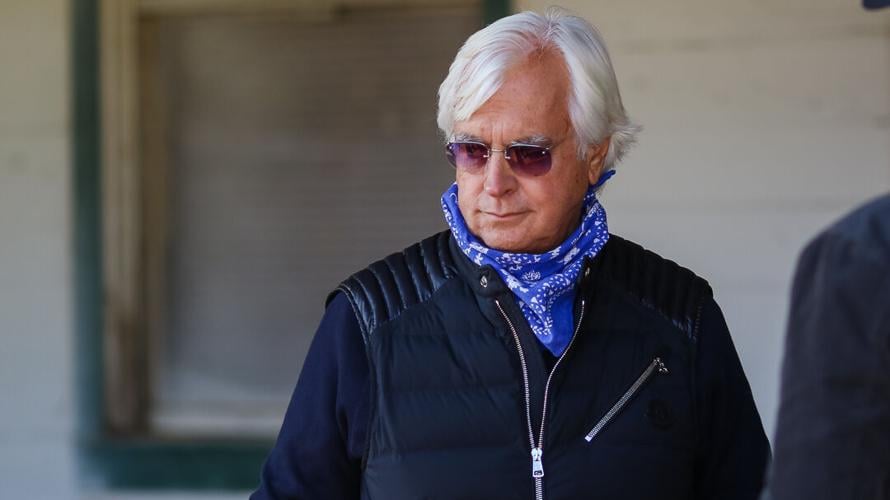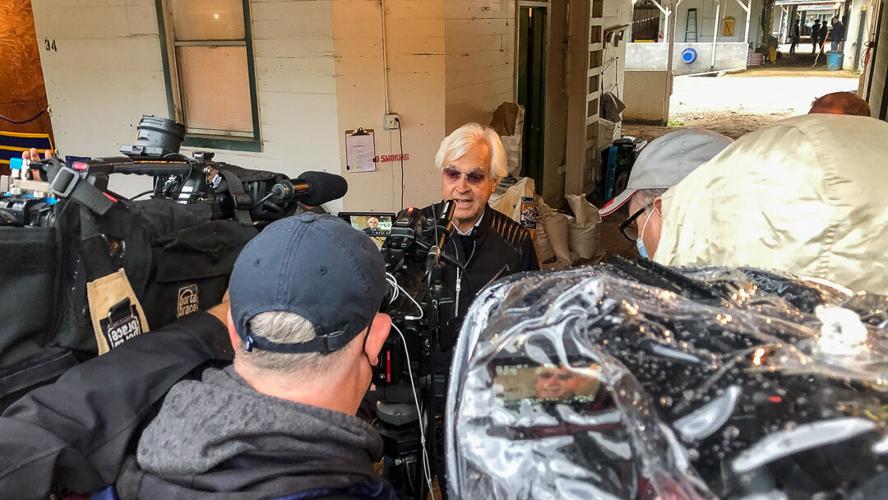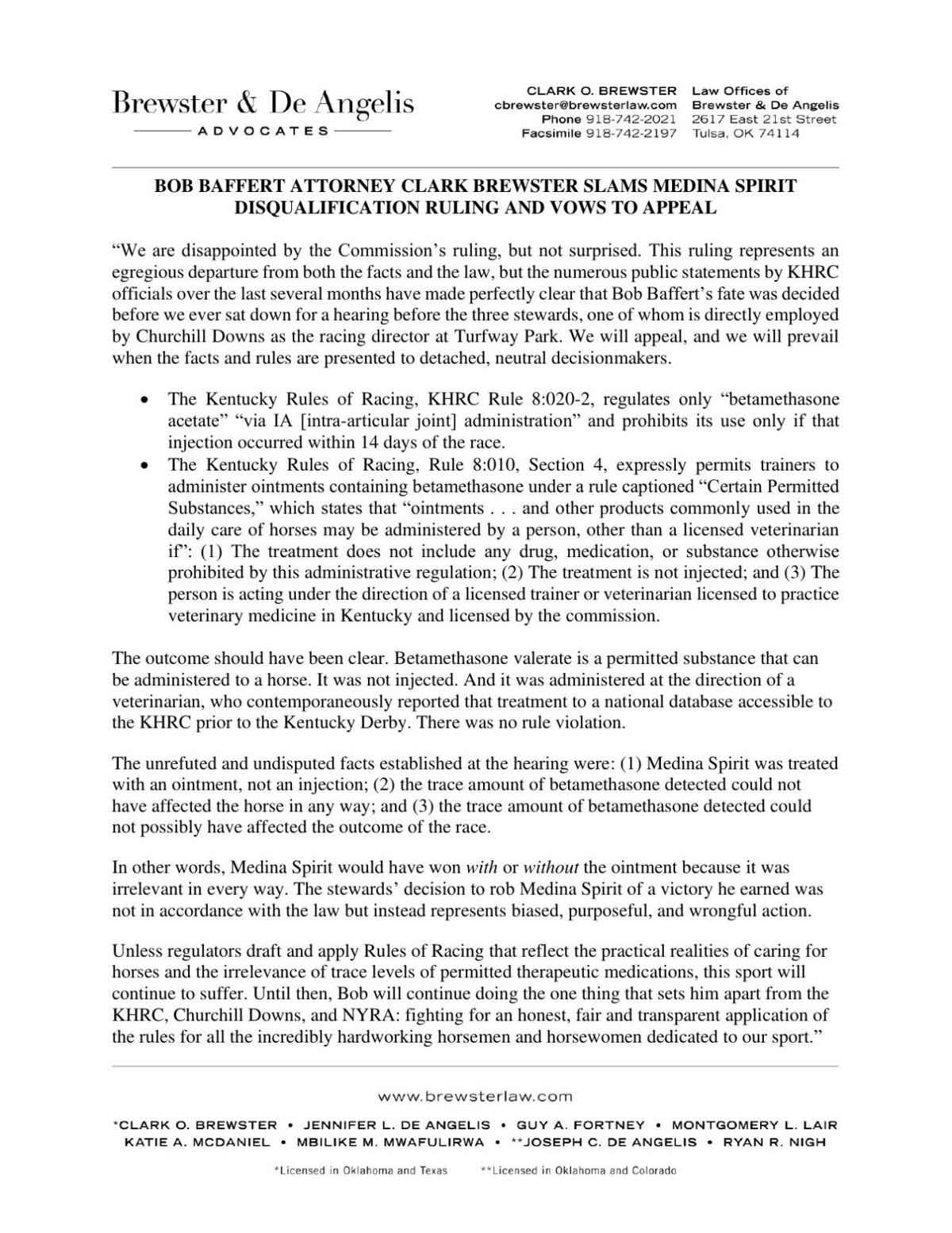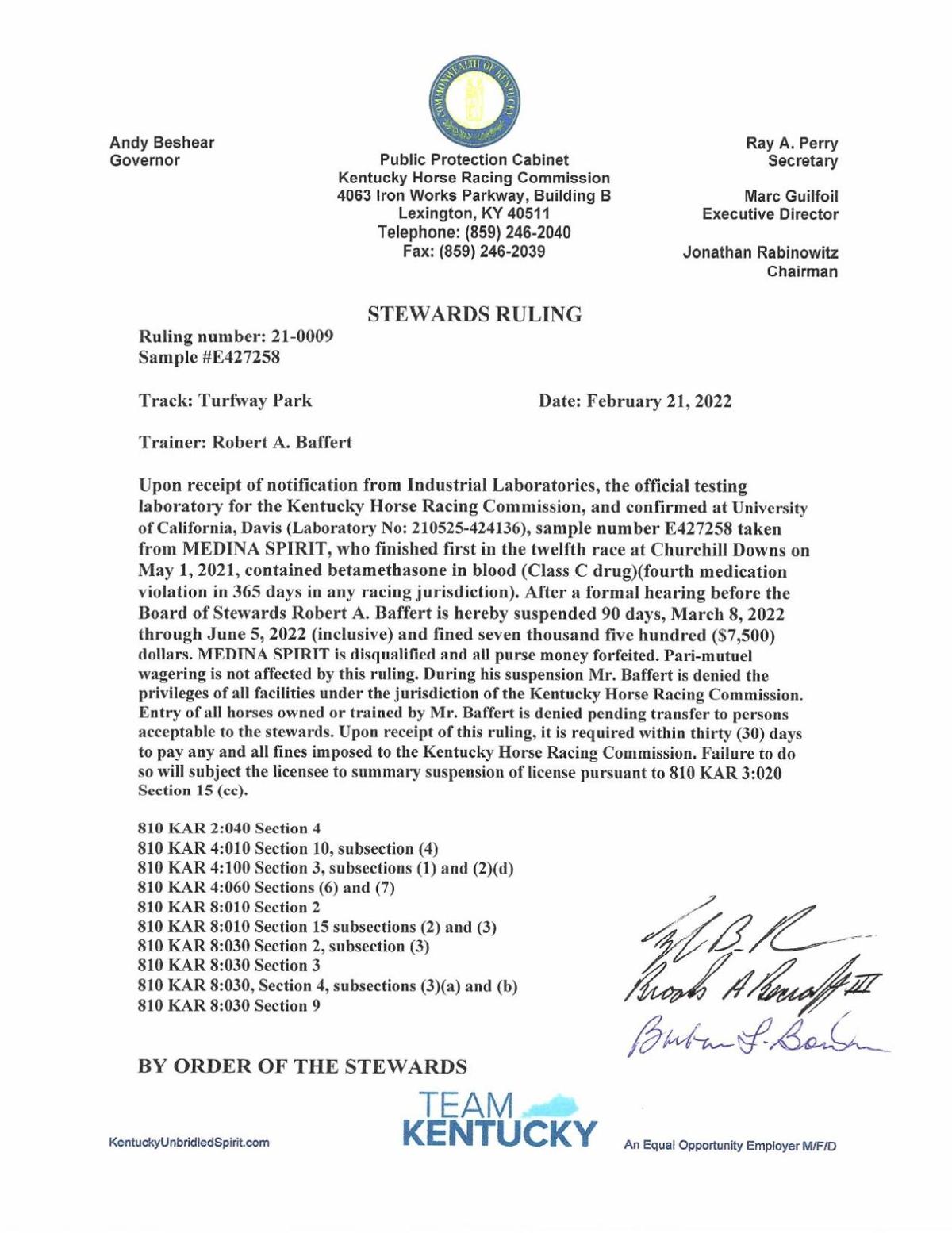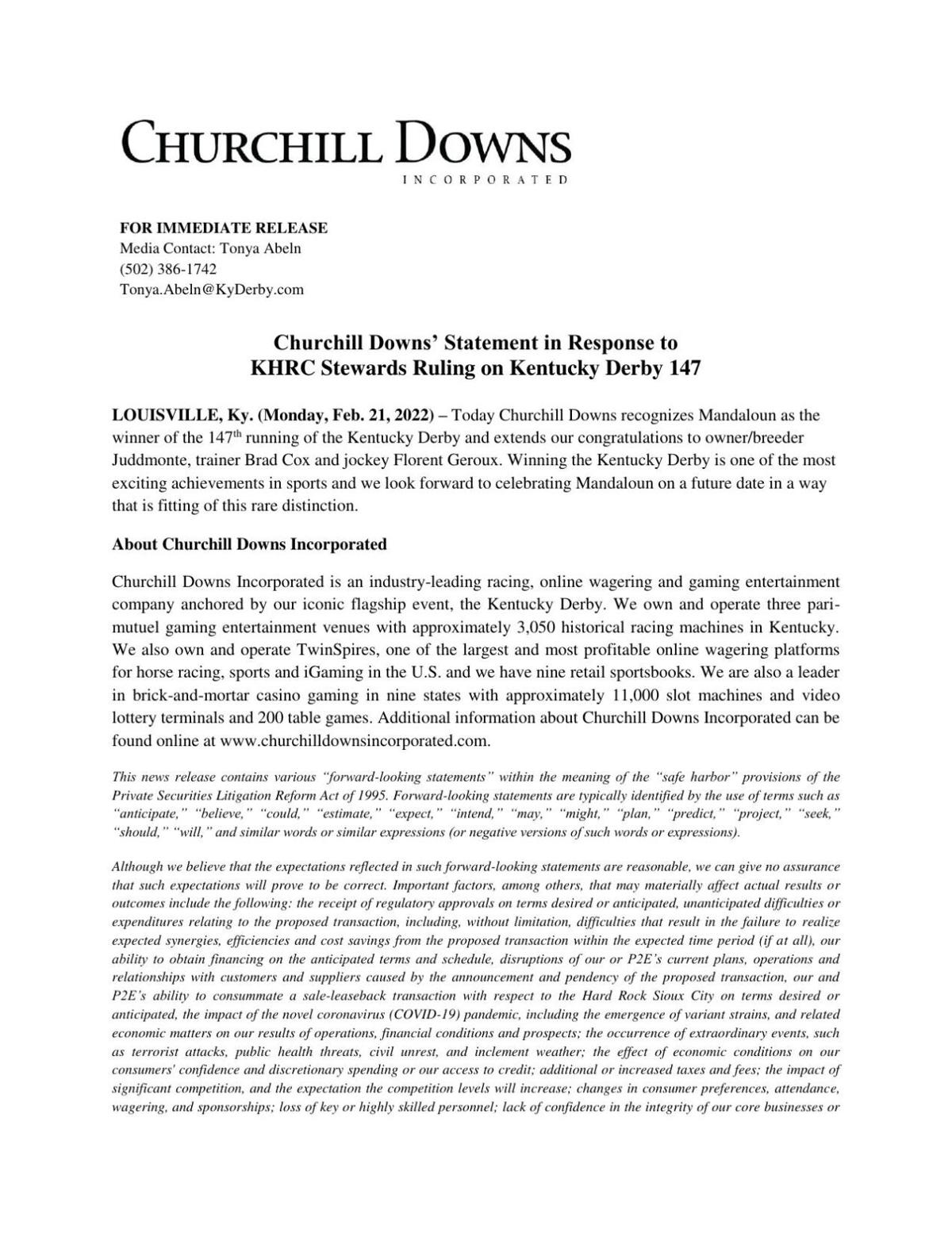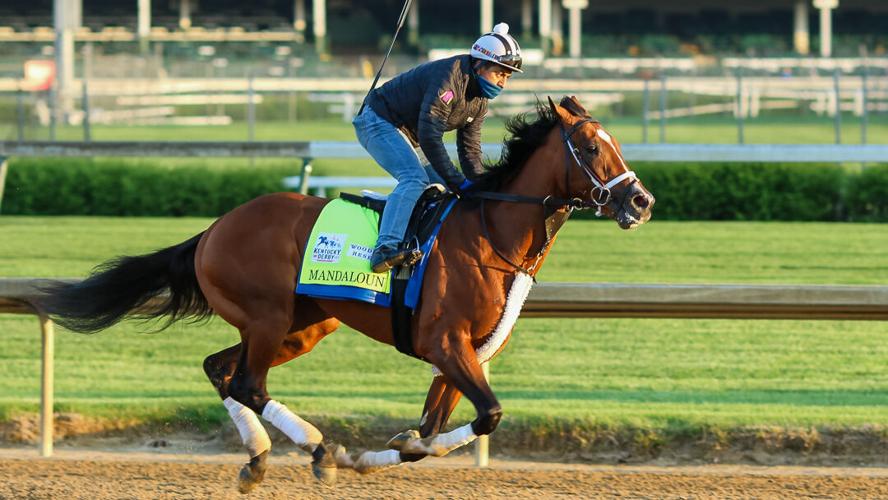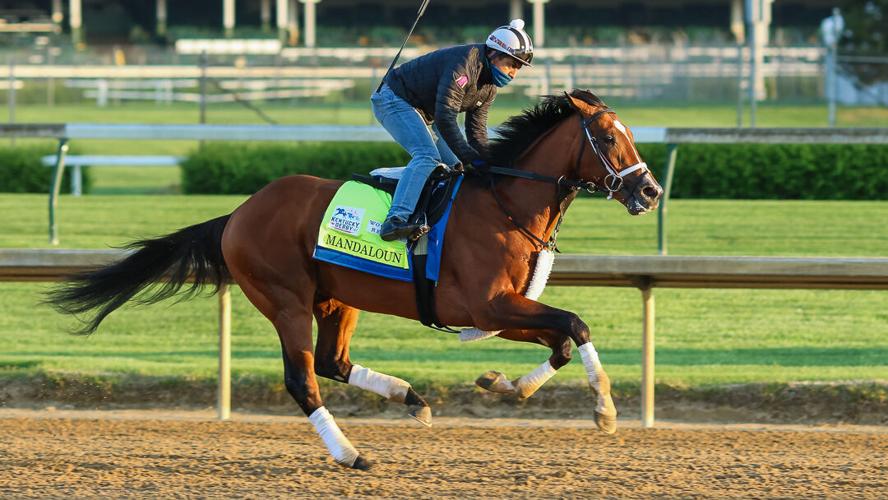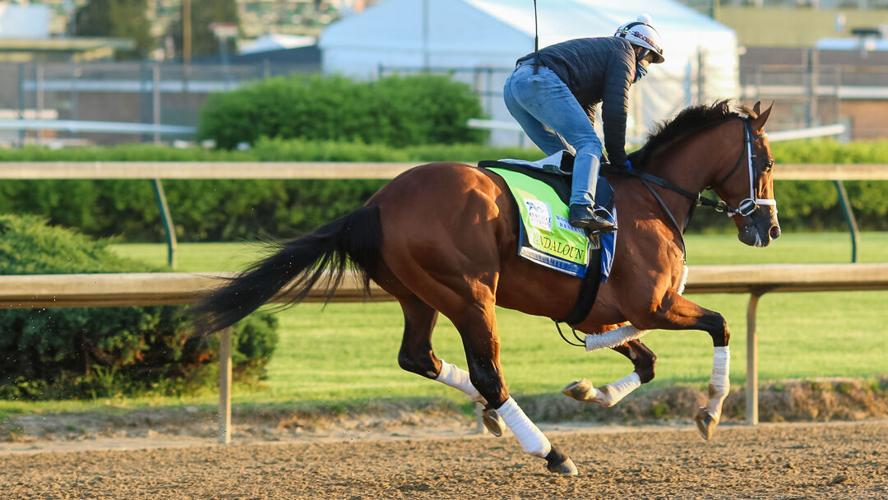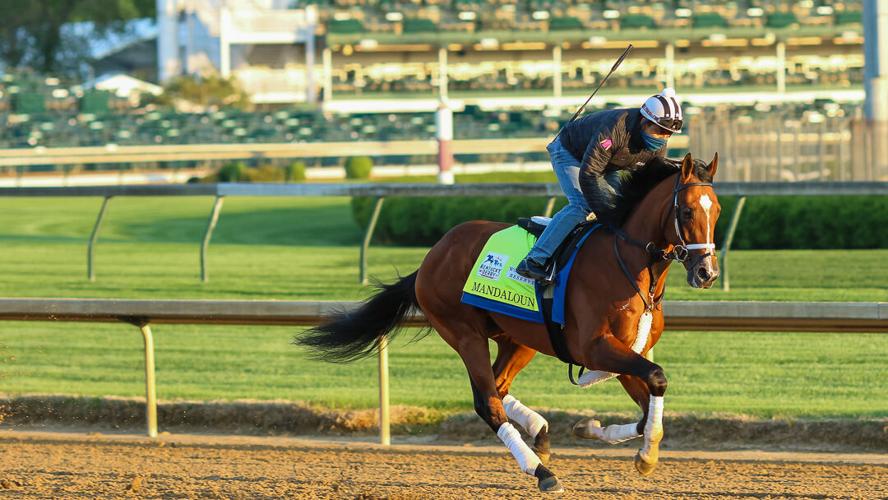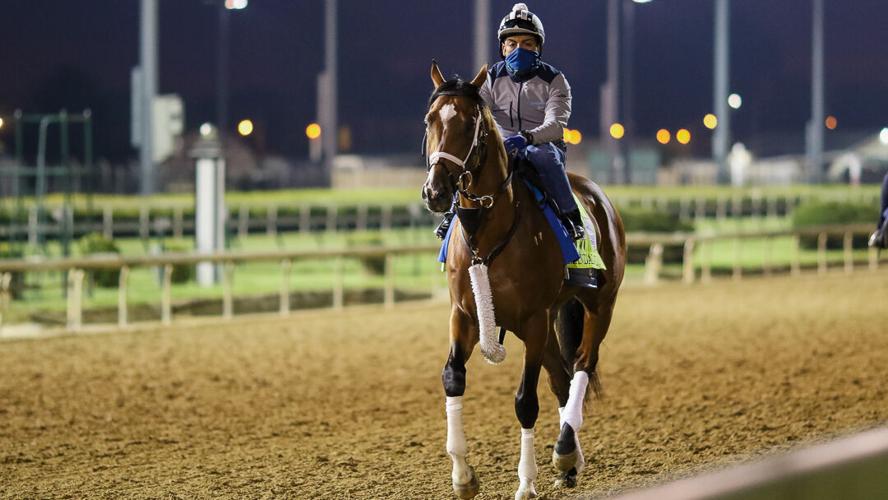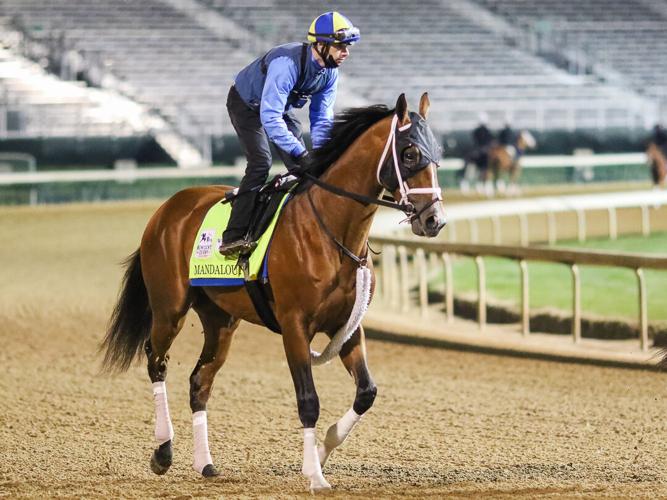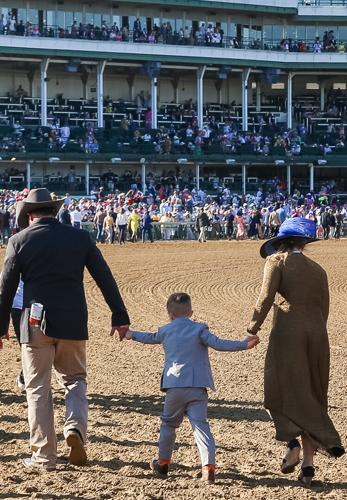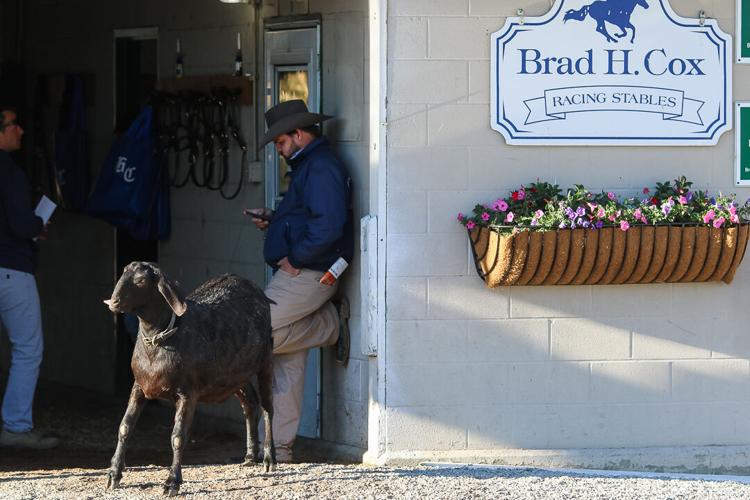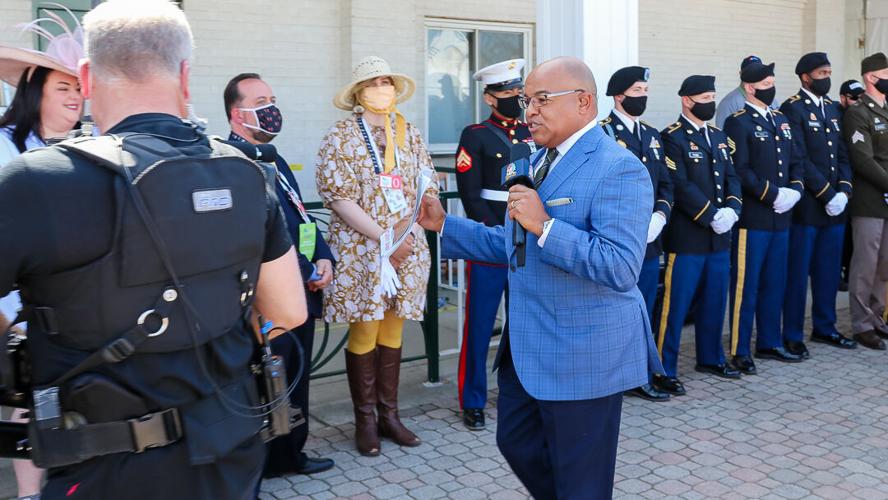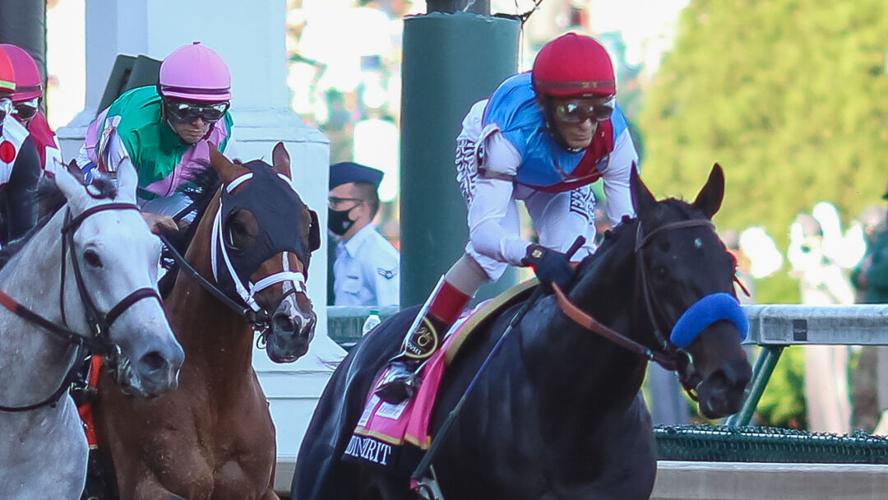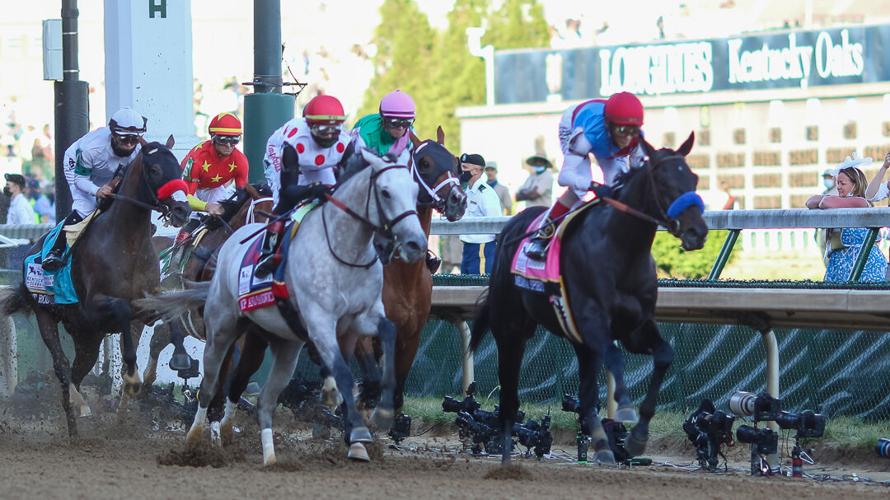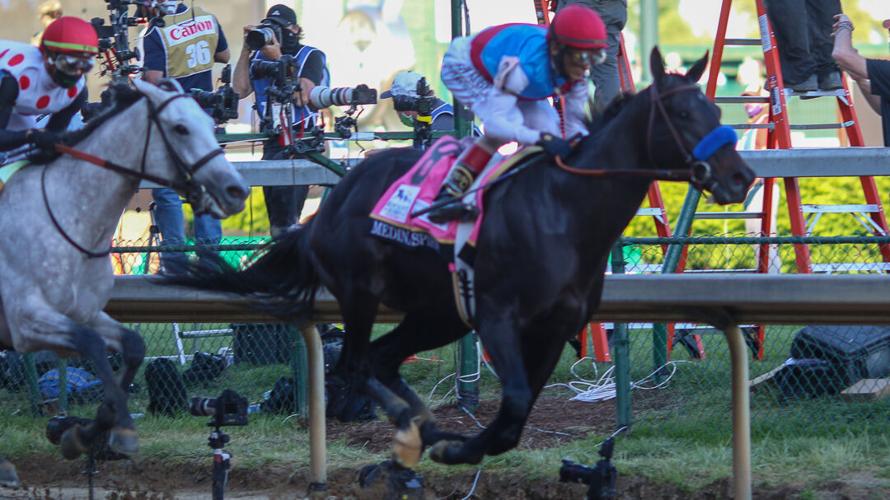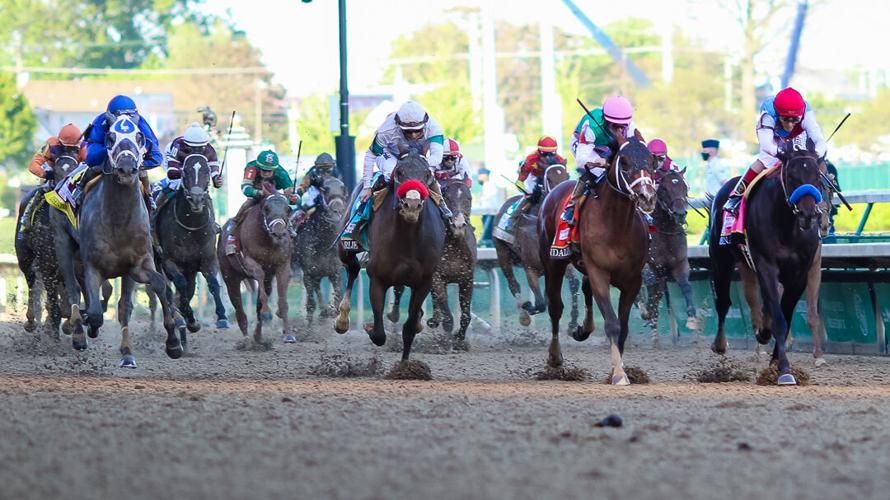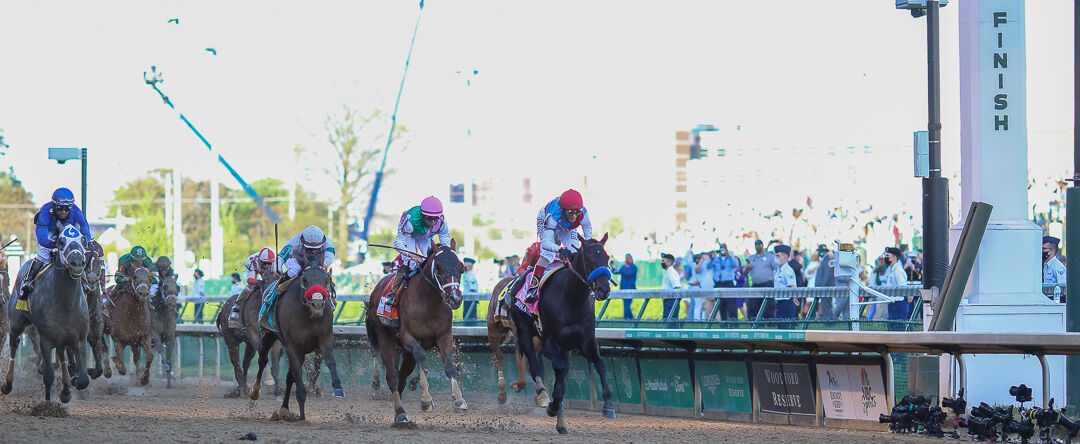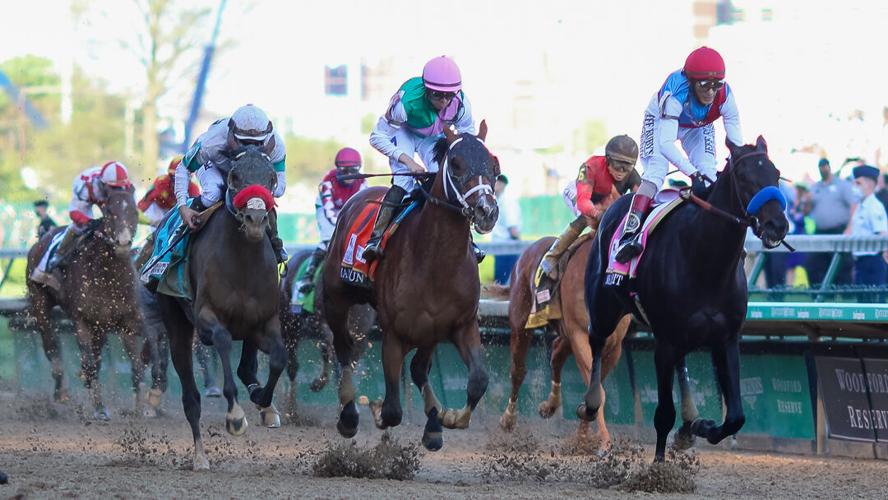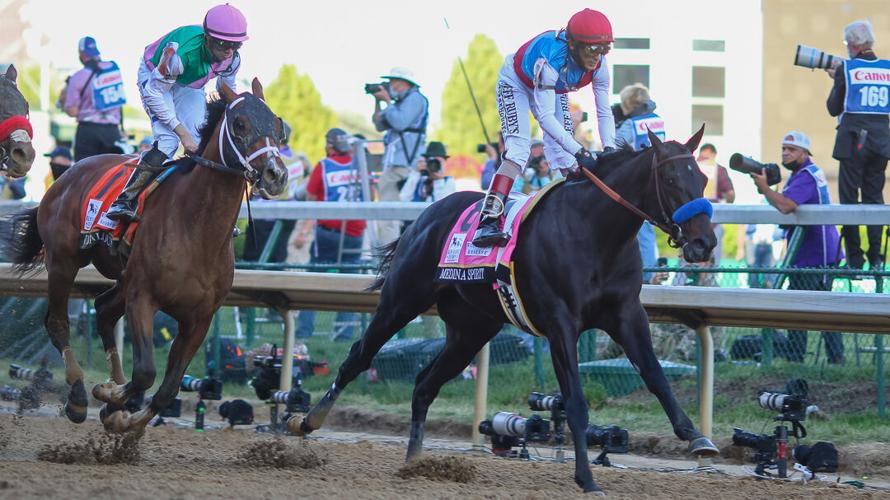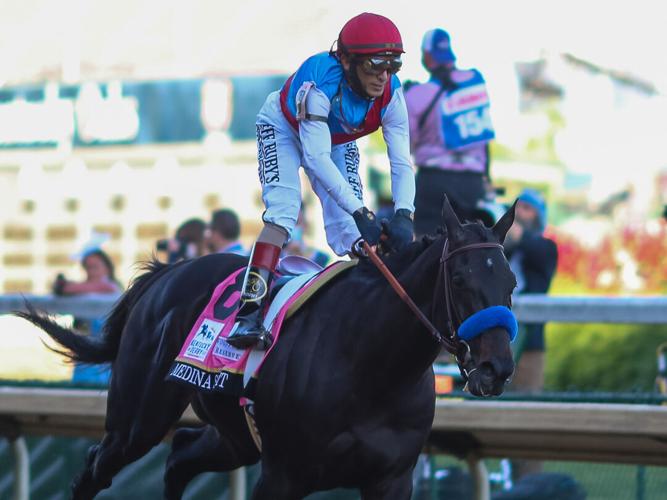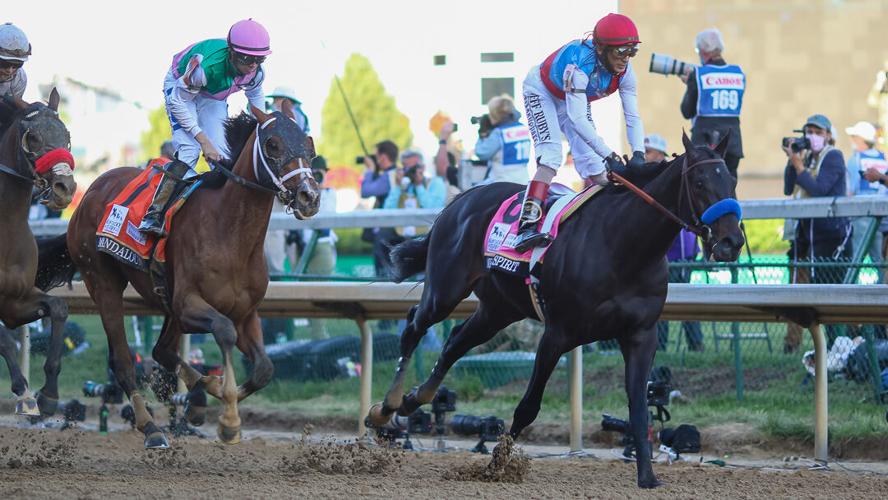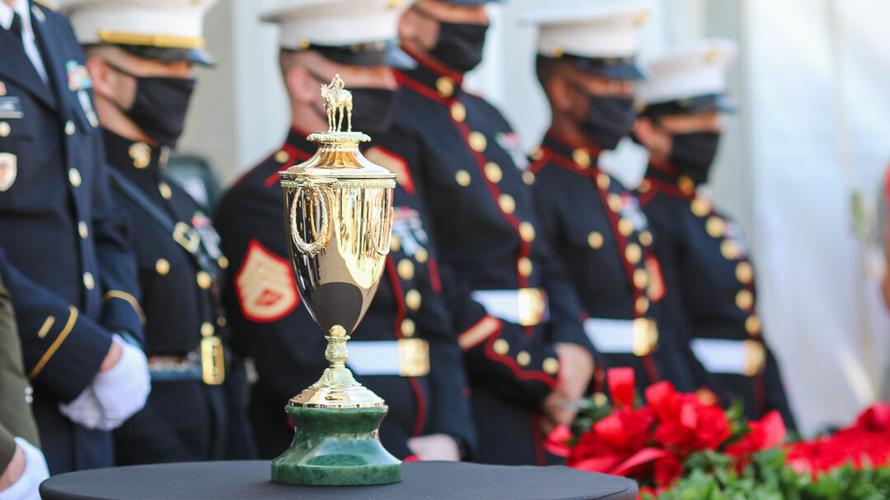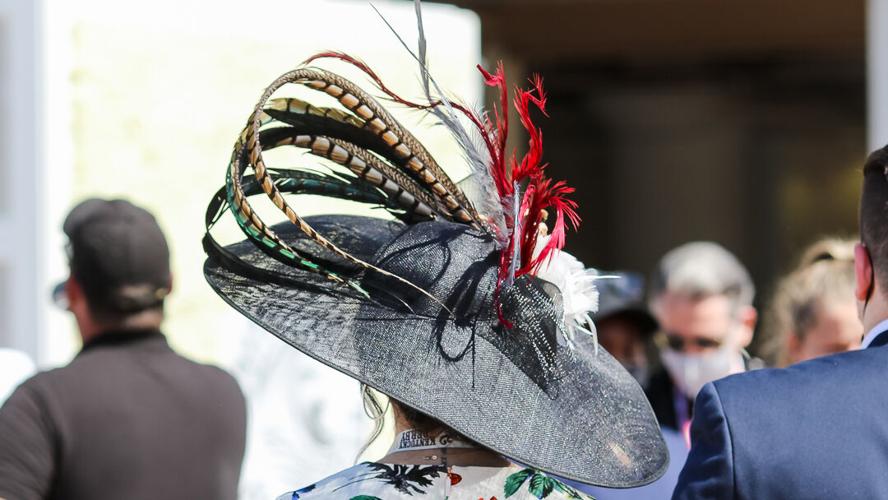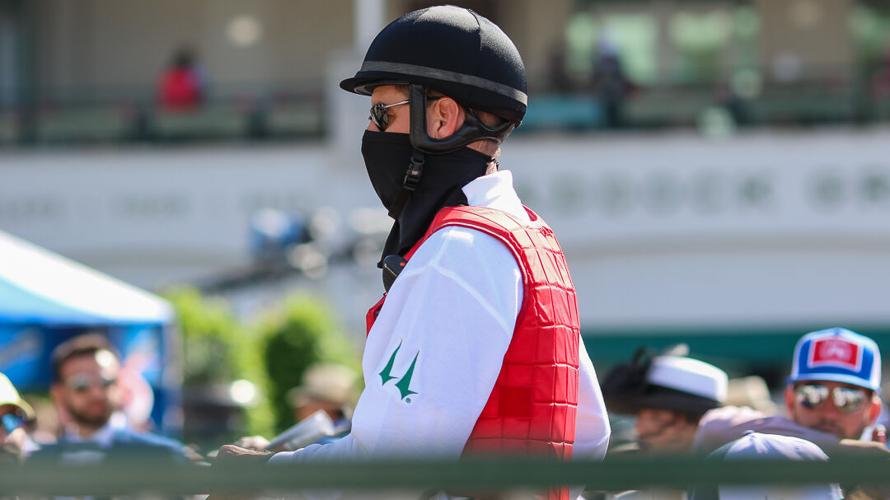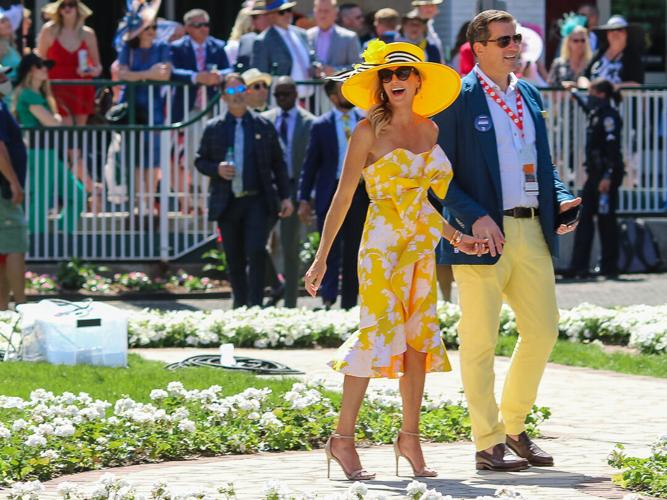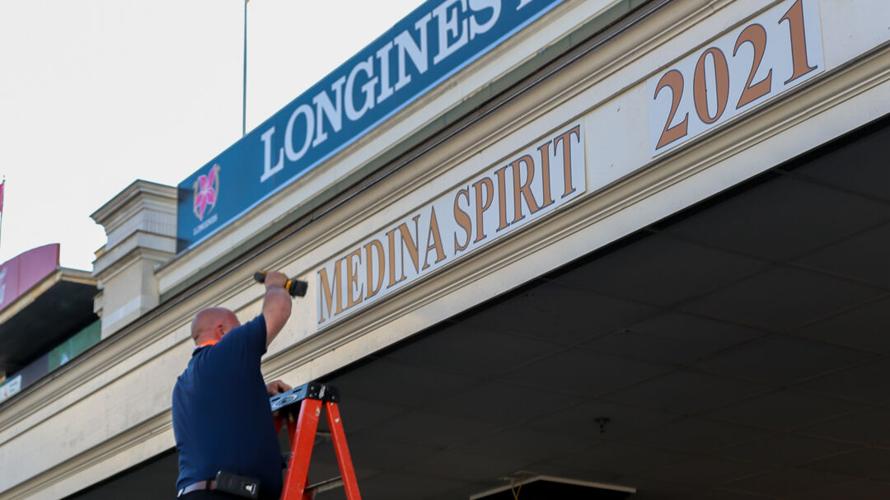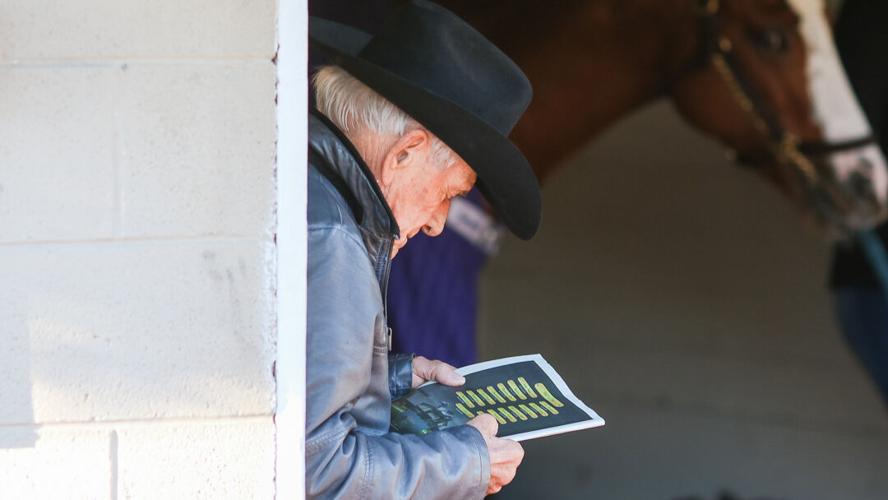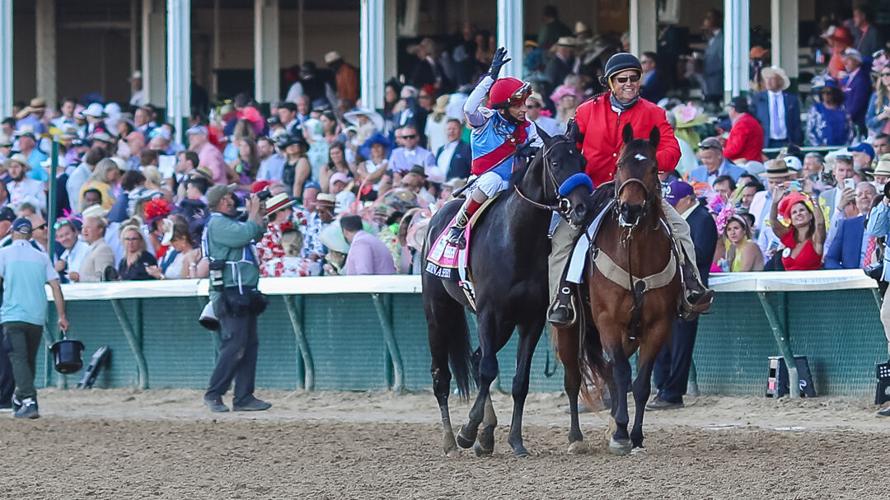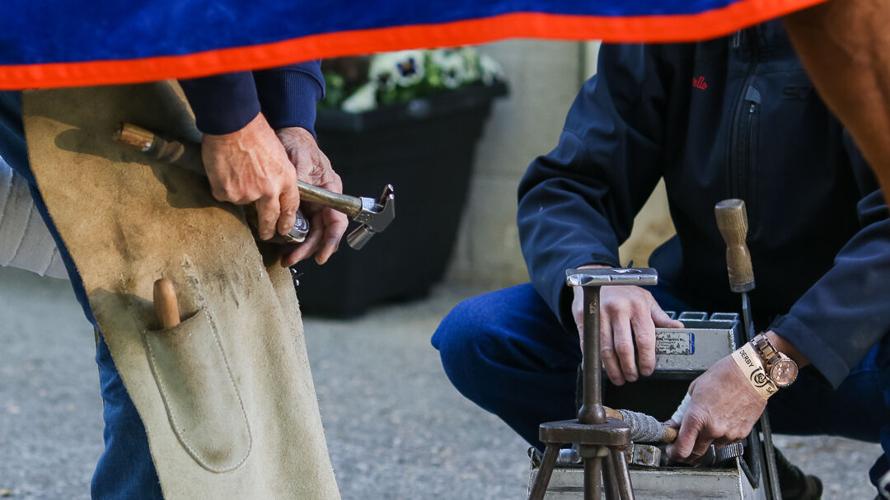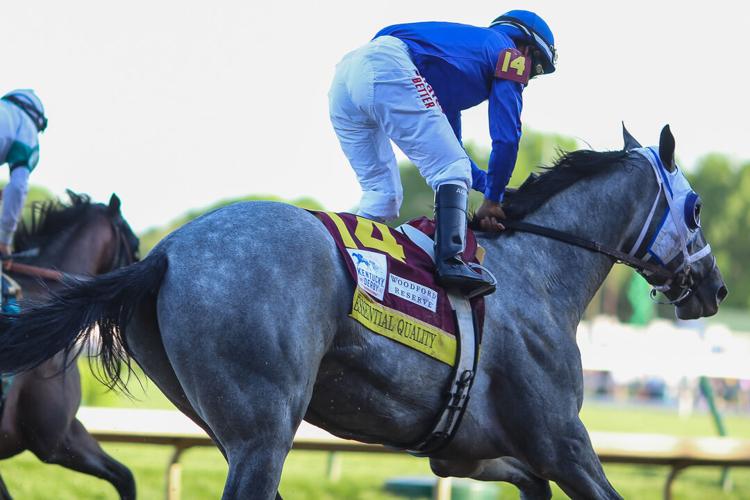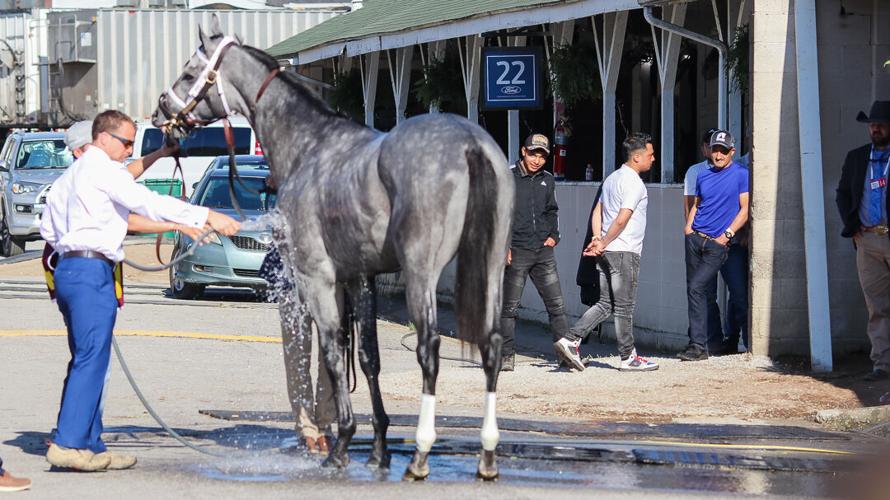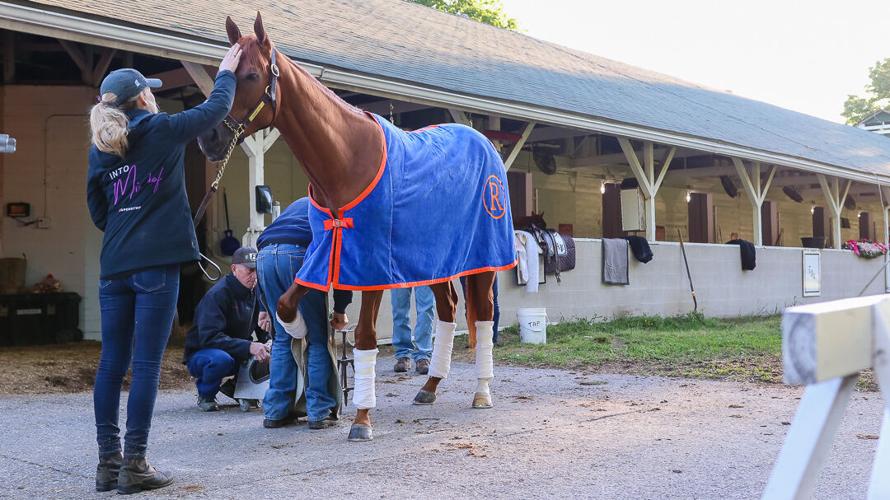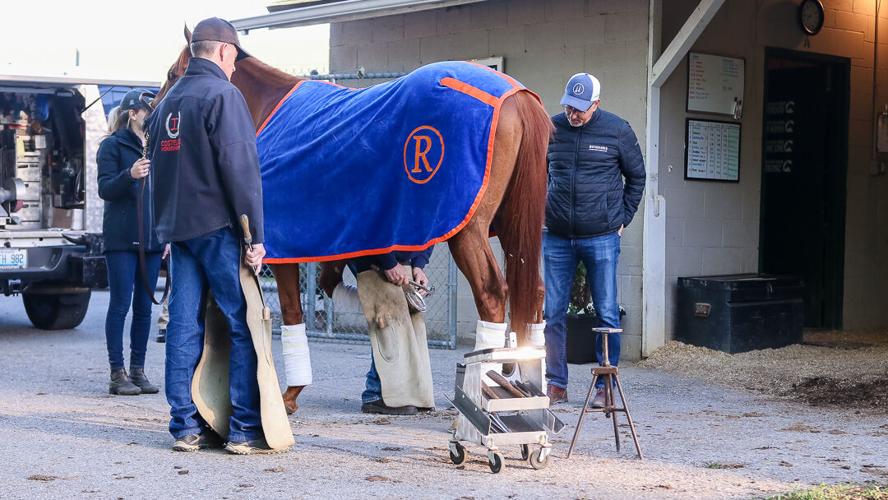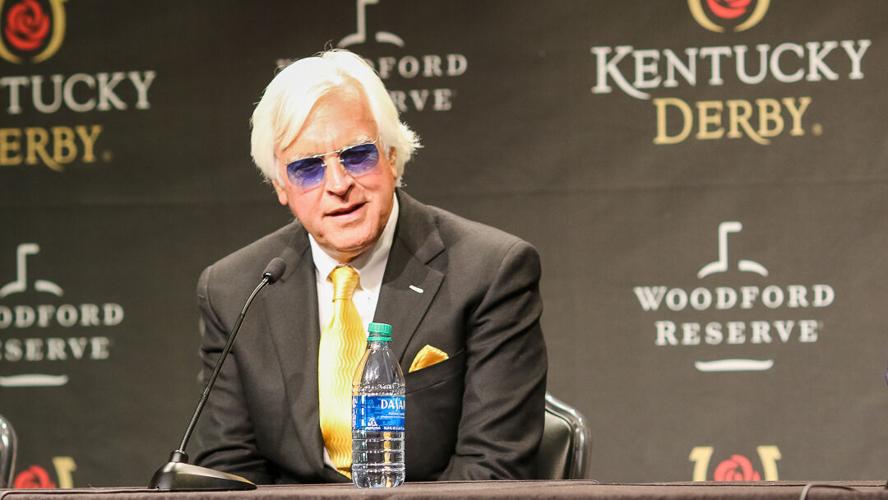LOUISVILLE, Ky. (WDRB) -- For the second time in the 147-year history of the Kentucky Derby, a winner was disqualified for a drug infraction.
Bob Baffert’s Medina Spirit, who crossed the finish line first on May 1, 2021, but later tested positive for betamethasone, a corticosteroid banned on race days in Kentucky, was disqualified after a second race day sample also tested positive. Second-place finisher Mandaloun was elevated to Derby winner.
Kentucky horse racing stewards announced their decision Monday to disqualify Medina Spirit after a hearing with the trainer and his attorneys. Baffert's attorney, Clark Brewster, followed the announcement with a statement that said they will the decision.
Brewster said, "this ruling represents an egregious departure from both the facts and the law, but the numerous public statements by KHRC officials over the last several months have made perfectly clear that Bob Baffert’s fate was decided before we ever sat down for a hearing before the three stewards, one of whom is directly employed by Churchill Downs as the racing director at Turfway Park."
Baffert can appeal the ruling and receive a hearing in front of the Kentucky Horse Racing Commission, which he is expected to do. The trainer could also challenge any commission decision in court in Franklin County, Kentucky.
Stewards also suspended Baffert for 90 days, until June 5, and fined him $7,500. The stewards are not required to elaborate on their reasoning. Their official notice listed the cause for disqualification simply as "betamethasone in blood."
The ramifications are historic all around. Baffert, whose win with Medina Spirit was his seventh, making him the winningest trainer in Derby history, now falls back into a tie with Ben Jones and becomes just the second trainer ever to lose the Derby for a drug infraction.
The delayed victory also brings a distinction to Mandaloun’s trainer Brad Cox, who becomes the first Louisville native ever to train a Derby winner. It’s a bittersweet accomplishment for Juddmonte Farms, Mandaloun’s owner and breeder, after the death of owner Prince Khalid bin Abdullah Al Saud in January.
The decision made by the horse racing stewards is supported by the Animal Wellness action, a group advocating for laws to shield animals from cruelty. Executive director, Marty Irby says the consequences for Baffert are reasonable.
"People are going to feel like the horses are safer," said Irby. "I think it's going to help lift this dark cloud that we've seen with Baffert over the past few years.
"In the public eye, he has little, if any credibility, and as long as horse racing continues to embrace Bob Baffert, horse racing is not going to have very much credibility, either."
It is the first off-track disqualification of a Derby winner since 1968, when Dancer’s Image was disqualified after traces of the drug phenylbutazone were found in a post-race urinalysis and Forward Pass was declared the winner.
"Today Churchill Downs recognizes Mandaloun as the winner of the 147th running of the Kentucky Derby and extends our congratulations to owner/breeder Juddmonte, trainer Brad Cox and jockey Florent Geroux," Churchill Downs said in a statement Monday. "Winning the Kentucky Derby is one of the most exciting achievements in sports and we look forward to celebrating Mandaloun on a future date in a way that is fitting of this rare distinction."
Medina Spirit, who ran second in the Breeders' Cup Classic on Nov. 6, died exactly one month later, collapsing on the track at Santa Anita Park after a 5-furlong workout. The initial cause of death is a heart attack, but doctors at the University of California Davis concluded that, "a definitive cause of death was not established despite extensive testing."
The move by Kentucky racing officials to disqualify Medina Spirit comes after a tumultuous and unusually public turn of events. Though state regulations require confidentiality in all matters of drug testing until a final resolution is reached, Baffert announced on May 9 that Medina Spirit had tested positive for betamethasone and vowed that the drug was not administered by anyone in his barn.
Shortly after that announcement, Churchill Downs suspended Baffert from racing at the track until an investigation into the positive test could be completed. After a second sample came back with a slightly higher amount of the drug positive in the blood, Churchill suspended Baffert for two years and later said that no colt trained by him would be eligible to earn qualification points for the Kentucky Derby during the time of his suspension.
Baffert has threatened legal action against the track, which alleges that he breached a contract that he and his veterinarian signed agreeing not to treat horses on the grounds with impermissible substances.
In late January, the trainer concluded a hearing in front of an officer appointed by the New York Racing Association to determine whether that body has the authority to suspend Baffert. It did so shortly after Churchill Downs' decision, but a federal judge in New York ruled that it could not suspend the trainer without a hearing.
Mandaloun
NYRA accused Baffert of conduct detrimental to the best interests of the sport, the safety of horses and to its business interests. In opening arguments, its attorney accused Baffert of "taking a wrecking ball" to the sport. Baffert's attorneys argued that he has been a "great ambassador" for horse racing, listing the many times he has brought horses to New York to create national interest for races in the state.
Baffert, who initially speculated in national media interviews that Medina Spirit must have been tampered with before the Derby, even blaming "cancel culture" for the controversy, shortly after reversed course and acknowledged that the drug had been administered in a topical form to treat a skin condition on his left hind leg.
The ointment, with the commercial name OTOMAX, contained betamethasone, though Baffert said the amount found in the colt’s blood – 21 picograms per milliliter – wasn’t enough to have an impact on his Kentucky Derby performance.
Kentucky officials found that argument immaterial.
Medina Spirit went on to run third in the Preakness Stakes. Baffert did not attend but issued a statement that took a more apologetic tone:
“As I have stated from the beginning, there was never any attempt to game or cheat the system and Medina Spirit earned his Kentucky Derby win,” Baffert said in the statement. “[The] presence of 21 picograms of an allowable therapeutic medication . . . would have nothing to do with Medina Spirit’s hard earned and deserved win. That win was the result of the horse’s tremendous heart and nothing else. Notwithstanding the foregoing, I acknowledge that I am not perfect and I could have better handled the initial announcement of this news. Medina Spirit’s Kentucky Derby win was so personally meaningful to me, and I had such a wonderful experience on May 1 at Churchill Downs, that when I got the news of the test results, it truly was the biggest gut punch I had ever received and I was devastated. That, coupled with the fact that I always try to be accommodating and transparent with the media, led to an emotional press conference on May 9 in which I said some things that have been perceived as hurtful to some in the industry. For that I am truly sorry. I have devoted my life’s work to this great sport and I owe it, and those who make it possible, nothing but an eternal debt of gratitude.”
In April 2020, the Kentucky Horse Racing Commission said that betamethasone could be administered intra-articularly up to 14 days before to a race. The acceptable threshold level was reduced from 10 picograms per milliliter (mL) in serum or plasma to zero in August 2020.
But Baffert has argued that because betamethasone was used topically, and not injected, the performance of the colt was not affected. His attorneys said a lab in New York was able to confirm that the drug was in the colt's system because of administration of a topical ointment, not an injection, and they have repeatedly argued that the amount of betamethasone found would have no performance-enhancing value.
DERBY DAY IN PHOTOS | Scenes from Kentucky Derby Day 2021 at Churchill Downs
Photos from Kentucky Derby Day 2021, from early morning at the barn to the post-race celebration.
While today's decision marks a historic moment for the Kentucky Derby and the sport of horse racing, it is far from the end of the story. Baffert figures to continue to fight both the Churchill Downs suspension — which is independent of the stewards' action — and the decision itself, in court if necessary.
A final resolution of the 2021 Kentucky Derby could take years.
Related Stories:
- Kentucky Derby first-place finisher Medina Spirit collapses, dies on track after workout
- Baffert drafting lawsuit to enter colts in 2022 Kentucky Derby, Churchill Downs vows to fight
- Churchill Downs bans Baffert-trained horses from qualification for Kentucky Derby and Oaks
Copyright 2022 WDRB Media. All Rights Reserved.

